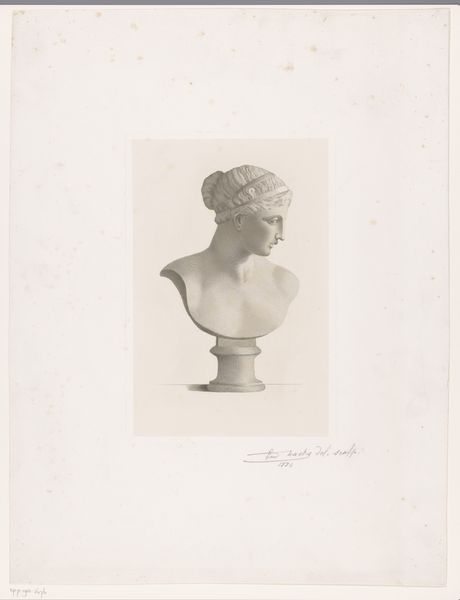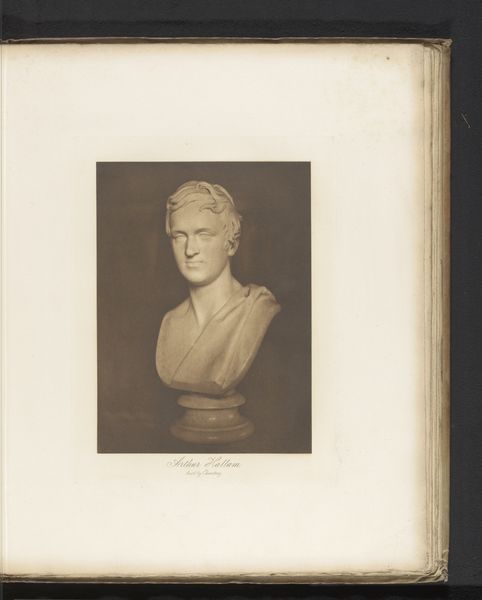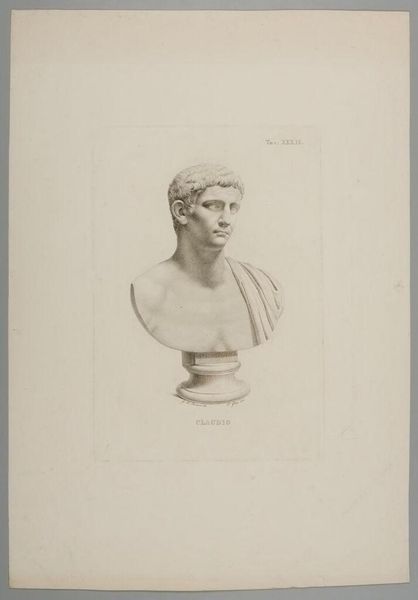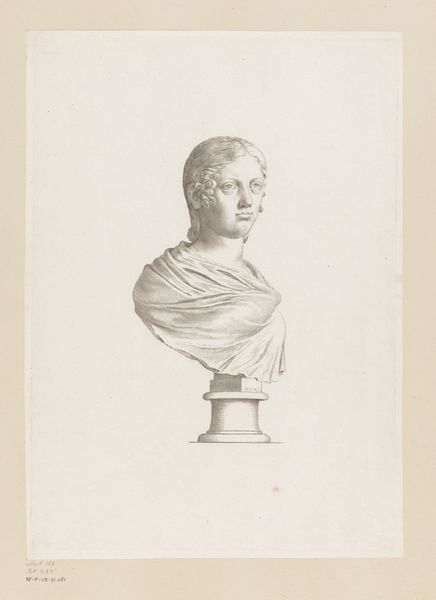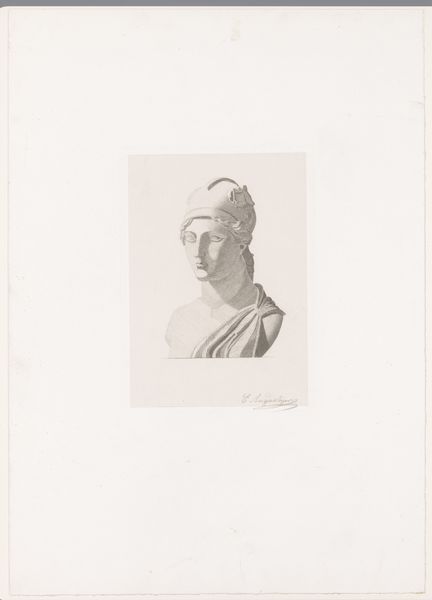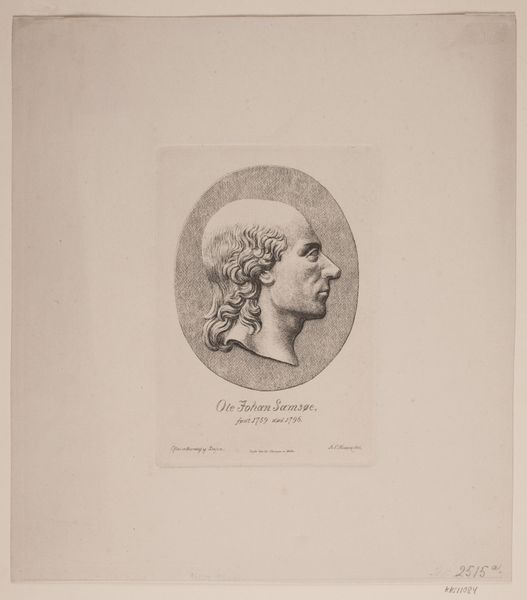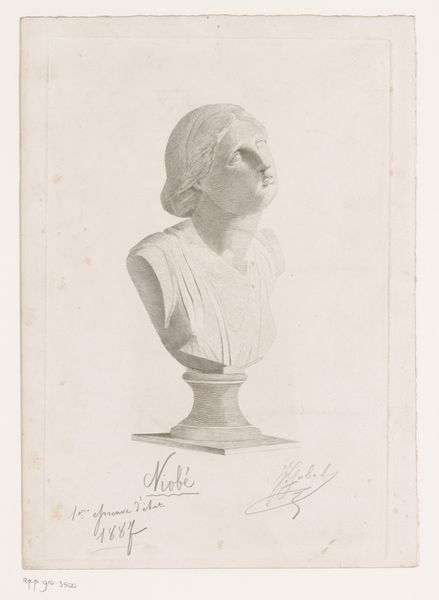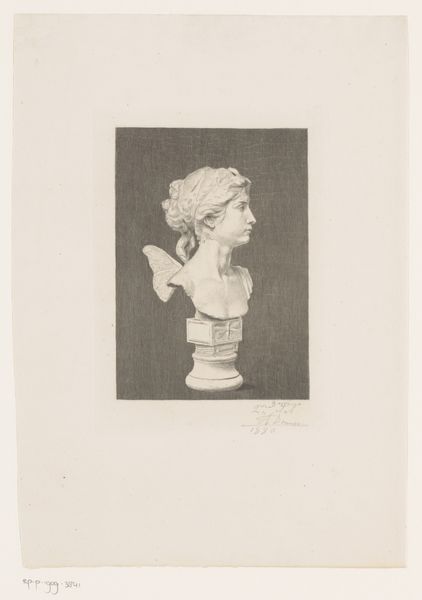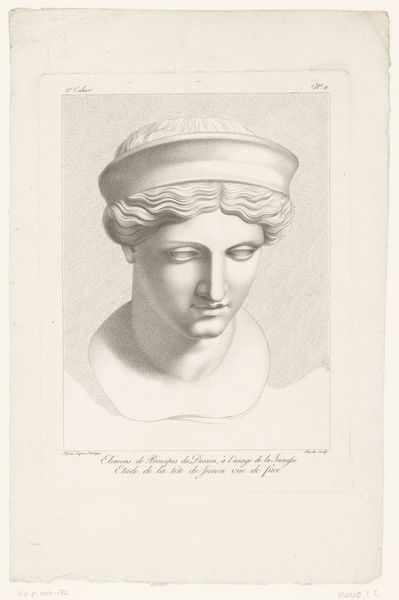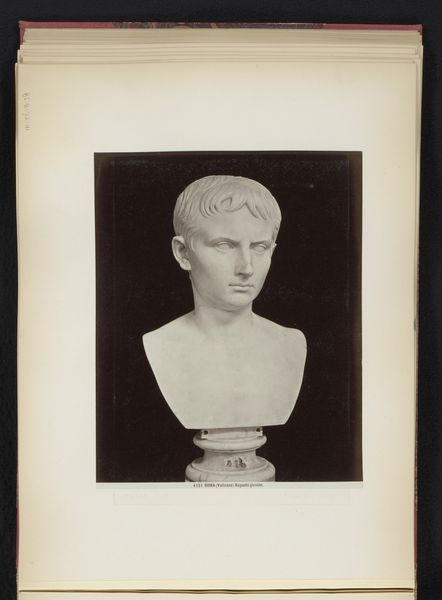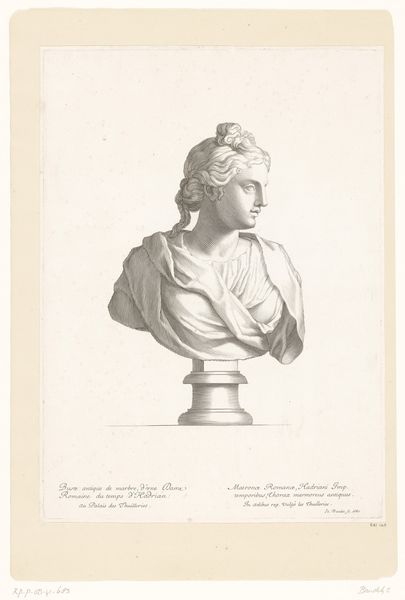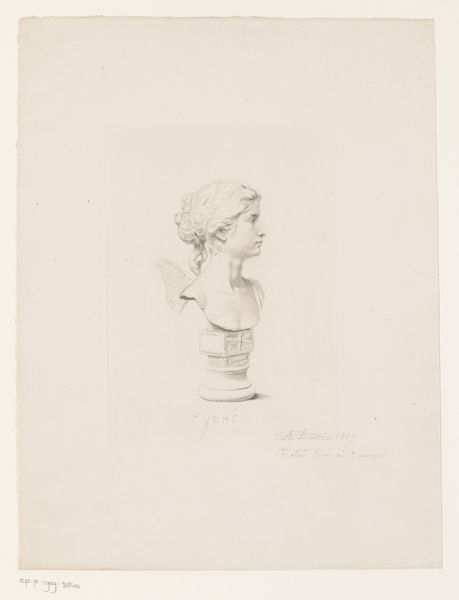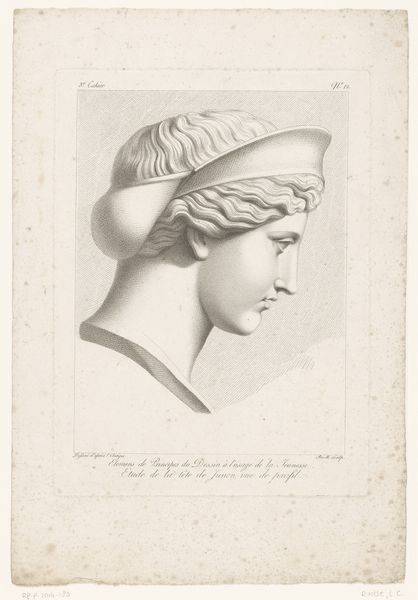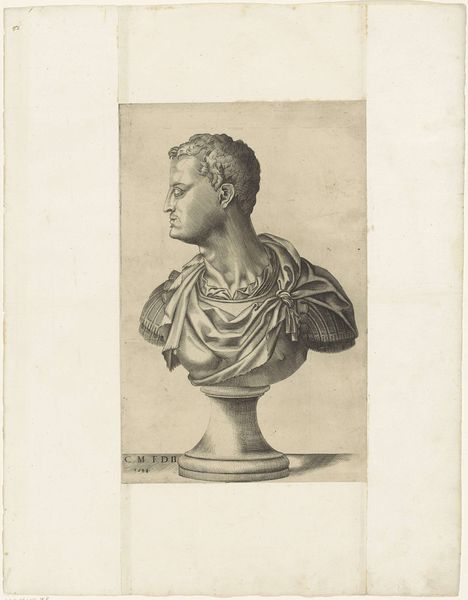
drawing, pencil
#
portrait
#
pencil drawn
#
drawing
#
aged paper
#
toned paper
#
light pencil work
#
pencil sketch
#
old engraving style
#
personal sketchbook
#
ancient-mediterranean
#
pencil
#
realism
Dimensions: height 149 mm, width 132 mm
Copyright: Rijks Museum: Open Domain
This drawing by J. Weyn, made in 1888, depicts a bust of Mercurius, the Roman messenger god, identifiable by his winged helmet. The helmet is a symbol of Mercury's swiftness and connection to the divine realm. Winged feet or helmets appear across cultures, symbolizing the ability to traverse worlds. The gesture of the wing finds resonance in ancient Greek depictions of Hermes, from whom Mercurius is derived, yet its roots extend further. Consider the winged solar disc in ancient Egyptian art, representing divine power and movement. Although geographically distinct, they share a common thread: a symbol of transcendence and communication between different realms. The enduring appeal of this symbol lies in our subconscious desire to overcome earthly bounds, and to reach beyond the limitations of the human experience. It is a potent reminder of our innate drive for knowledge, exploration, and spiritual connection. Like a restless spirit, this image continues to resurface, evolving, and echoing throughout the corridors of time.
Comments
No comments
Be the first to comment and join the conversation on the ultimate creative platform.
